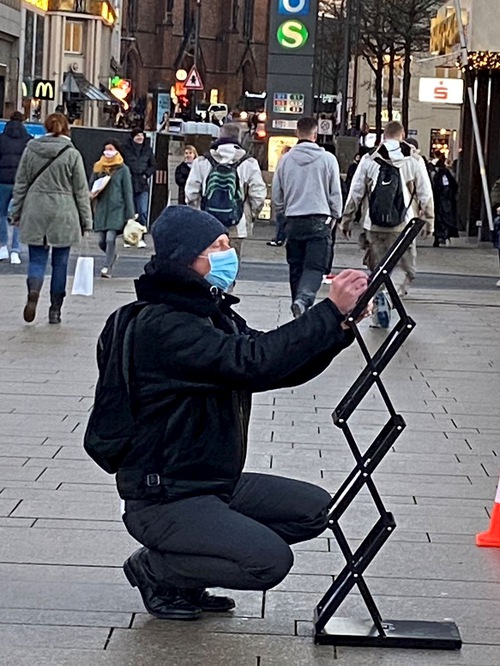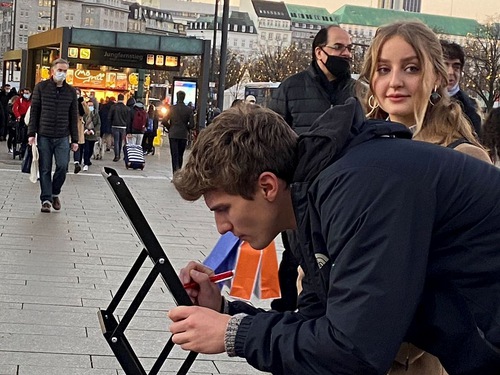(Minghui.org) Falun Gong practitioners held activities on Reesendammbrücke, a well-known bridge in Hamburg, Germany, on November 27, 2020, to expose the Chinese Communist Party’s (CCP) persecution.
The majority of passersby on the bridge on weekdays are commuters. Because the bridge is near Hamburg City Hall, it is also popular with tourists. In the early evening, the Christmas lights that went up recently added to the lively atmosphere. Because of restrictions due to the coronavirus pandemic, practitioners were not allowed to hand out fliers to pedestrians.
However, Falun Gong practitioners' calm expressions in the cold wind, their graceful exercise movements, and the beautiful music made people stop and want to learn more about the practice. Some passersby took the initiative to sign the practitioners' petition after reading some of the banners, and some took brochures about Falun Gong of their own accord.
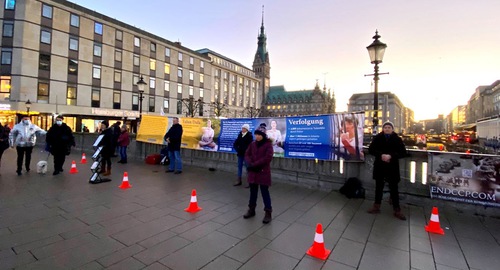 Falun Gong practitioners on Reesendammbrücke in Hamburg, Germany, expose the CCP’s persecution.
Falun Gong practitioners on Reesendammbrücke in Hamburg, Germany, expose the CCP’s persecution.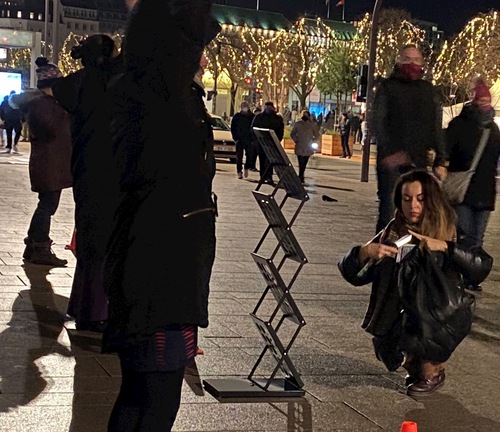 A passerby takes information about Falun Gong.
A passerby takes information about Falun Gong.
Behrens was passing by when he paused to read the banners. He asked a practitioner what the others who were demonstrating the exercises were doing
The practitioner explained that they were doing the Falun Gong exercises and then told Behrens more about Falun Gong and the Chinese Communist Party's (CCP) 21-year-long persecution of the practice, including its state-sanctioned organ harvesting from Falun Gong practitioners.
When he asked if he could sign the petition, Behrens said, “This persecution is despicable. How can such a thing happen? People can’t do such things to animals. And just because of a person’s beliefs. Such things cannot be allowed to happen.”
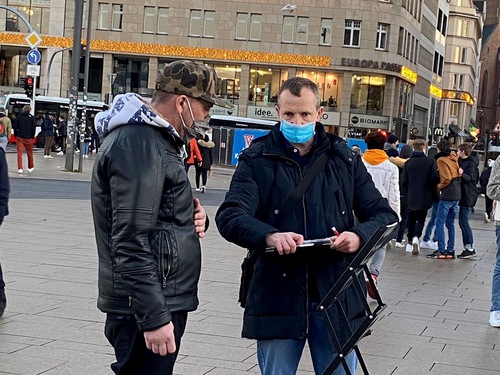 Behrens signs the petition to protest the persecution
Behrens signs the petition to protest the persecution
Peter read a nine-meter-long banner from beginning to end as he passed by. He returned after walking a short distance away and signed the petition. He said he wanted to add his voice to protest the CCP’s atrocities. He said he had heard about the persecution.
“Collecting signatures to reflect public opinion to the German government is, of course, fine,” he said, “but it will definitely be more useful if the German government economically sanctions the CCP. For example, if you violate human rights, we will not do this or that trade.”
Jasper was saying farewell to several of his friends nearby and then turned around to read the posters. He signed the petition right away and said he wanted to help stop the persecution. He said it was the first time he’d heard about the CCP’s persecution. “The persecution will have to stop when the voices protesting the persecution become too strong,” he said.


